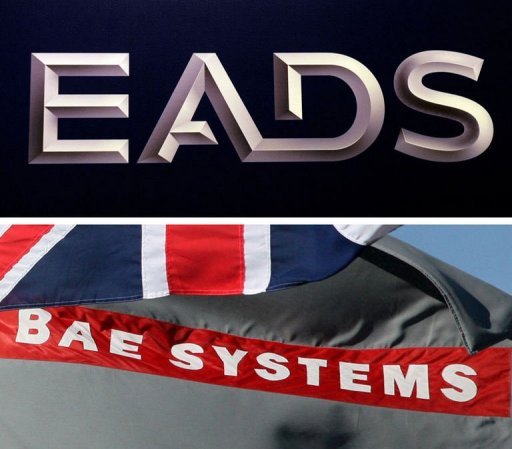It has been six years since the start of global financial and economic woes and three since the onset of sovereign debt crisis in Europe – and yet, Europe soldiers on.
Preoccupation at the EU level with the rapidly escalating crisis overshadowed the scrapping of the US Missile Defense Shield in Poland and the Czech Republic by the Obama administration in 2009.
Fast-forward three years to October of 2012, when German domestic interests prevailed, blocking the merger of the pan-European EADS and the British BAE Systems – two giants in the European aerospace and defense sectors.
Most recently, a forced contraction of the EU’s 2014-2020 budget by a 3.3% is a further consequence of global financial and economic instability. A dismal survey of the last six years perhaps, but at least there is still an EU to speak of.
US Missile Defense in Europe: Pressing a Reset Button or Betraying the Super-bloc?
Since 2002, the US had been negotiating the installation of missile-intercepting systems in Central and Eastern Europe. Under the Bush administration, the US firmly committed itself to installing silo-based Interceptor missiles, dubbed the “Missile Defense Shield” in NATO and EU member countries Poland and the Czech Republic. With increasingly threatening displays of Iranian missile capabilities, such as with the Shahab-6, the Shield was meant to address a missile launch against US positions in Europe and the US proper.
Although the plan was not publically popular in either Poland or the Czech Republic, it was touted as a security guarantee by conservative as well as more liberal politicians, citing historical patterns of chronic national unpreparedness, political complacency, and human tragedy. With President Obama’s inauguration, however, American foreign policy turned a corner. The new President inherited a dismal economic situation, with the global financial and economic crisis near its apogee, chronic asymmetries and imbalances in NATO commitments, and ever more frigid relations with former adversaries.
The Russian Federation had been the most vocal opponent of the US Missile Defense Shield since the plan’s inception, proposing alternative sites and in former Soviet republics under Russian supervision, such as Azerbaijan, hinting at the prospects of a renewed Cold War-era arms race, and threatening the nuclear militarization of Russia’s Western border. The plan was scrapped in 2009 by the Obama administration, amid praise from the Russian Federation, and some Western European leaders.
Despite equally strong reasoning for and against the system, the underlying scrapping of the deal nevertheless begs an explanation. Experts have since concluded that US Interceptor sites could not be effective against ICBMs launched from Russia due to response-time constraints. Can then, the scrapping of the deal be explained on the grounds of diplomacy, the politics of a new administration, frustration with the persistent inadequacy of European capabilities, or because of economic constraints? The answer is probably a combination of these, but it is nevertheless a fact that the final decision to axe the Shield was done in the context of tremendous global economic uncertainty and of a much overdue “return” of responsibility for continental defense back to the European community, ready or not. Can it be said then, that the US Missile Defense Shield on the EU’s eastern border was a casualty of the crisis? Even if the economic crisis cannot be blamed as the sole culprit for the plan’s collapse, the period of transition from Bush to Obama was more than just an economic crisis; it was a crisis of American leadership and American global credibility. In that sense, the Shield was a casualty of a crisis.
EADS-BAE Merger Collapse: Domestic Economic Interests First!
On October 10th, 2012, Europe saw the collapse of merger negotiations between the European Aeronautic Defense and Space Company (EADS) with the British BAE Systems. EADS is a group of companies including the famous Airbus, Eurocopter, Astrium, Cassidian, Eurofighter, and many others, producing everything from civilian space vehicles to the most high-tech military hardware. Declining BAE sales made it a good candidate for acquisition by EADS as it had access to American markets, but due to disagreement between Germany, France and Britain on the details, such as the ownership structure, the location of the corporate headquarters, and jobs numbers per country, the deal was scuttled.
In a formal statement, EADS announced that negotiations ended because the “interests of the parties’ government stakeholders cannot be adequately reconciled”.
Although all three governments are partly to blame for this intervention, Germany was widely seen as the deciding actor. The merger collapse also stalled the integration of European defense industries, a setback for hopes to compete with American giants such as Boeing. Experts had dismissed developments as “incredibly short-sighted”, dismissing the behavior of the three countries as a “territorial mindset” which runs counter to the logic of integrating the EU’s defense industries – truly a “dark day for European defense” according to Robert Stallard of RBC Capital Markets in London.
Explanation for this turn of events was clearly articulated by the parties involved, with French President Fançois Hollande stating that his government simply sought to protect French jobs and “defense interests”, while the German Deputy Economy Minister Peter Hintze believed that Germany’s industrial interests were best protected by keeping EADS as a solely Franco-German company. The shareholder side of the story has, nevertheless, drawn a painful lesson that in a time of crisis, the coming together of companies whose stakeholders reduce them to quasi-state owned companies is unlikely to produce results which will adequately safeguard the interests of both governments and investors. In this kind of disagreement, and within this context, the decision of the party with the monopoly on coercive power will prevail, even if it is less than desirable.
EU CFSP: Budget Cuts, Constrained Intergovernmentalism, and Wanting Capabilities
The EU’s Common Foreign and Security Policy (CFSP) is a pillar of the European Union treaty, and is the organized foreign policy of the Union, as agreed by the Heads of Government of the European member states. The EU, however, does not conduct an all-encompassing foreign policy, but is limited to international trade, commerce, as well as aid to third countries. Although the defense of Europe is seen as the responsibility of NATO in the CFSP, a certain duality has emerged between NATO and the CFSP since 1999, with the EU now able to undertake missions if NATO decides not to act. In reality, however, the CFSP depends not so much on NATO, but on US military capabilities.
The face of the EU’s CFSP is the EU High Representative Catherine Ashton who acts as the Union’s minister of foreign affairs, with a dedicated staff comparable to any national-level ministry. On February 8th, however, the effective future operation of the EU level was put into question as EU Heads of Government agreed on an EU 2014-2020 budget that is 3.3% smaller from 2007-2013. Most notably, the new 2014-2020 budget is missing € 6.3 billion of development aid, seriously undercutting CFSP capabilities in third countries and the work of the EU High Representative. The new budget totals € 960 billion, a far cry from the originally proposed € 1.025 trillion – a 6.34% difference.
The capping of the EU budget at € 960 billion has been touted as a victory for Eurosceptic actors. Seen as a compromise brokered by the Prime Minister of the UK David Cameron, some news media outlets see the new budget as sending the wrong message, both within the “super-bloc” and globally. Specifically, “security and citizenship” has been cut to € 15.7 billion from € 16.7 billion, “global Europe” from € 60.667 billion to € 58.767 billion, and “administration” cut by a billion euros, originally at € 62.629 billion, perhaps indicative of the super-bloc’s temporary global retreat.
EU member states will engage internationally through the CFSP and the EU High Representative only if they perceive it as an effective tool of foreign policy. Cuts to the EU’s global presence and bureaucracy are more than likely to undercut that effectiveness. The new EU “crisis” budget leaves little hint of investment in any EU external action capabilities, placing renewed stock in NATO. Is Europe bound to hang on to the coattails of the United States and NATO well into the first quarter of the 21st century? What then, can the general trend of American redeployment to the Pacific theatre mean for developments in the EU? Stronger and more expensive national militaries when security threats concern the Union as a whole?
Besides imminent budgetary constraints, the EU’s CFSP is not only a prisoner of EU member states but also of the United States and the kinds of dynamics it can influence by virtue of its military capabilities and commitments to NATO. This phenomenon has been termed as “partial bandwagoning” by scholars such as Catherine Gegout, in which the US holds a special position in the formation of a common European position in the international space. Specifically, the US acts as a benevolent observer, a stimulus for action, a security authority, an actor with the power of veto. All of this in tandem constrains any intergovernmental process which occurs at the EU level.
Whether it is Missile Defense, the EADS-BAE merger collapse, or the EU’s inward-looking “crisis” budget, all portents indicate plans, deals, and policy areas which have suffered in one way or another as a result of, not only the global financial and economic crisis, but also because of a crisis in politics, leadership and global vision.
US withdrawal from Europe, or “redeployment” if you like, might mobilize Europeans to seek homegrown, common solutions, but until the threats become imminent, the calls will likely remain localized and distant.
Intervention in the European defense sector in favour of the status quo is dangerous in the kinds of signals it sends to investors and bodes poorly for those inevitable times when Europeans will require not only scope in the European defense sector, but also scale.
Austerity for European external capabilities may only mean a rude awakening further down the line, as crushing poverty in developing countries makes way for extremist sentiment and blame-dynamics which might eventually hit too close to home.
Can the European community expect more casualties in times of crisis? As it stands, it is a game of wait-and-see.




